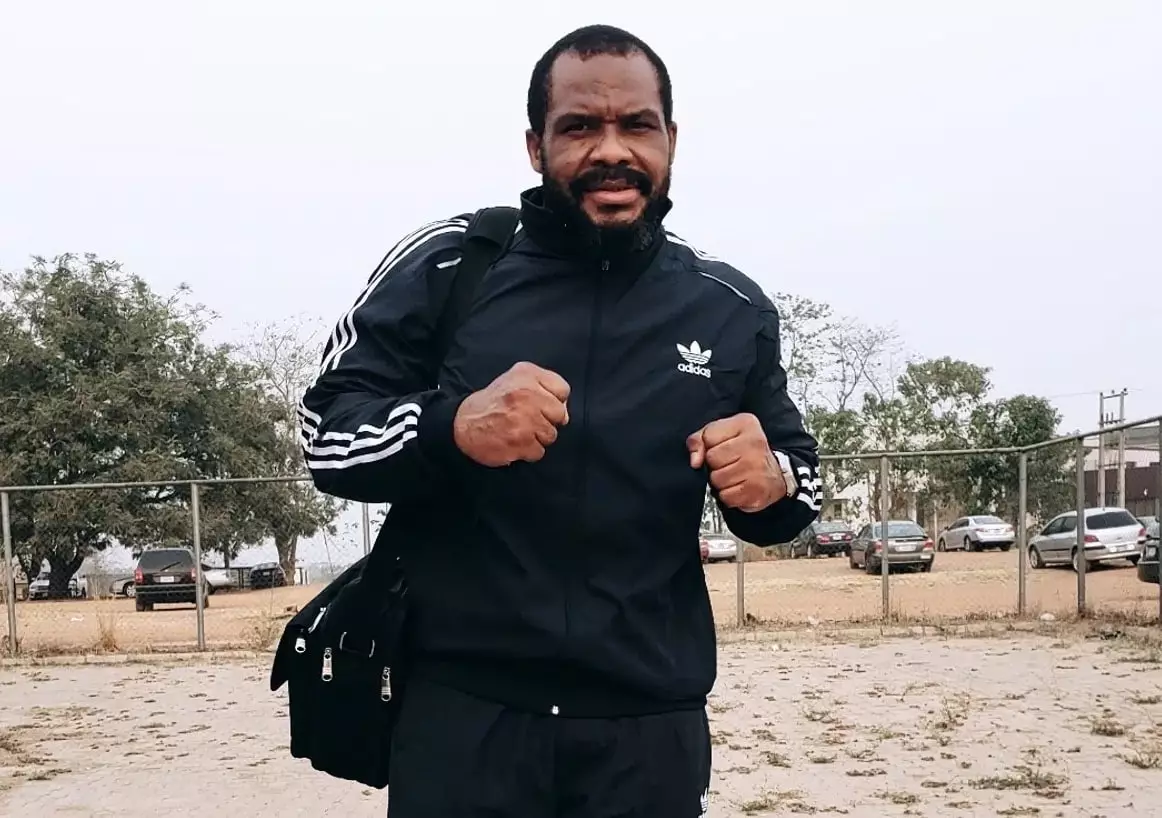Ike Ibeabuchi, a former heavyweight star who vanished from the boxing landscape for nearly 25 years, is making headlines once again. Scheduled to fight on December 24 in Port Harcourt, Nigeria, Ibeabuchi will step into the ring against Ayman Farouk Abbas, a 47-year-old boxer with a lackluster record of 4-10-1. The stakes may not seem high for boxing aficionados, but the intrigue surrounding Ibeabuchi’s return raises questions that far exceed any ordinary match.
Ibeabuchi holds an impressive professional record of 20 wins and 15 knockouts, achievements that have immortalized him in the annals of heavyweight boxing. Iconic matches, such as his electrifying encounter against David Tua, are celebrated as modern classics among fans and historians alike. Such high-profile performances put him on the radar as a potential heir to the heavyweight throne. However, multiple controversies marred his career, leading to his untimely fall from grace, including a prison sentence related to serious criminal behavior.
The narrative surrounding Ibeabuchi’s return is complex. His last fight took place in 1999—a fact that emphasizes how much time has elapsed. While some may argue that the sport of boxing is unforgiving, with age often being a fighter’s greatest adversary, Ibeabuchi’s resilience seems to shine through. Yet, one cannot help but ponder the mental and physical toll that years of absence and personal turmoil will have on him.
Making a comeback at 51 is not simply a matter of stepping into the ring; it raises pressing questions about how Ibeabuchi manages today’s combat styles, neurological health, and the psychological pressure of performing in front of an audience after decades away. The fight against Abbas is an intriguing gamble—a chance for Ibeabuchi to recapture past glory, but also a large risk that could lead to further physical or emotional distress.
Ayman Farouk Abbas presents a puzzling match-up for Ibeabuchi. Coming off two consecutive losses and having recently fought to a draw against a competitor he appeared to lose against, Abbas’ record raises concerns. Is he merely a stepping stone for Ibeabuchi’s return, or does he possess the unpredictability that could make this match an unpredictable spectacle?
While fans are naturally drawn to this peculiar storyline, the fight promises not only curiosity but a potential reflection on the value of mental health and the legacy of athletes who struggle against inner demons as they return to their craft.
In a world where spectators are obsessed with viral moments and extreme sports, Ibeabuchi’s comeback is poised to capture attention. Whether or not fans are actually able to watch the fight remains uncertain, but the mere thought of what might transpire is captivating. Will Ibeabuchi reignite the flame of his former self, or will age and time prove too formidable an opponent?
Ultimately, this unexpected return encapsulates the essence of boxing fandom—an emotional investment in the narratives of redemption, failure, and the pursuit of glory. Regardless of the outcome, Ibeabuchi’s fight will be a reflection of a complex journey through time, bringing forth feelings that resonate with loyal fans and casual observers alike.


Leave a Reply